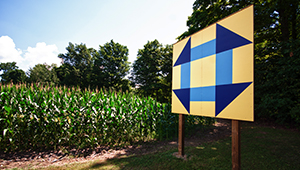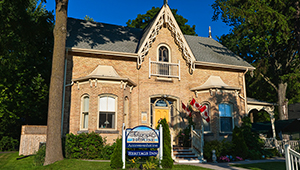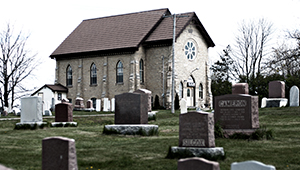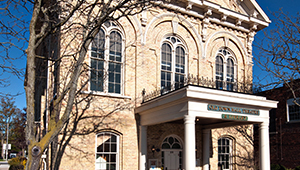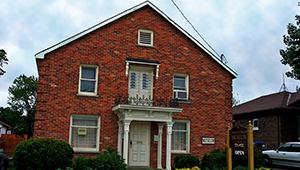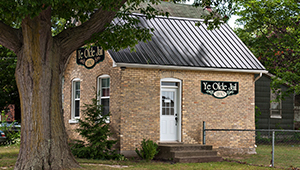The Attawandaron also known as the Neutral Nation established villages and grew crops in this area of southwestern Ontario until the mid 17th century. In 1803 Colonel Thomas Talbot arrived on the fertile shores of Elgin County. Over the next 30 years, in his role as official land agent, he oversaw the settlement of 3,000 residents in the area stretching from Woodstock to Windsor. Early settlers to the area fulfilled conditions such as building roads and clearing land.
During the War of 1812, American raiders plagued the settlement, burning mills and stealing horses, clothing, food and any possessions they could carry. Colonel Thomas Talbot was a target for capture but was never caught. After the war, more settlers arrived: Highland Scots, Irish and Quakers from Pennsylvania. Towns appeared and ports developed along Lake Erie’s shores.
Railway arrived in the 1850s. Over the next 50 years five railway lines were established through St. Thomas and Elgin. Processing Plants such as the Carnation Milk Company and the Canadian Canners Limited in Aylmer as well as cheese factories and fisheries made food processing a key industry. Sandy soils in the County’s east were ideal for tobacco production and the Imperial Leaf Tobacco Company opened a facility in Aylmer in the 1940s.
Elgin County’s heritage is a rich tapestry made up of thousands of unique stories. Today these stories are brought to life in our museums, archives, historic buildings, and preserved through the efforts of curators, historians, re-enactors and hundreds of volunteers. Elgin County’s storied past can be found in the historic village of Sparta, at the Southwold Earthworks near Iona and during its many annual heritage events including Doors Open each autumn.

